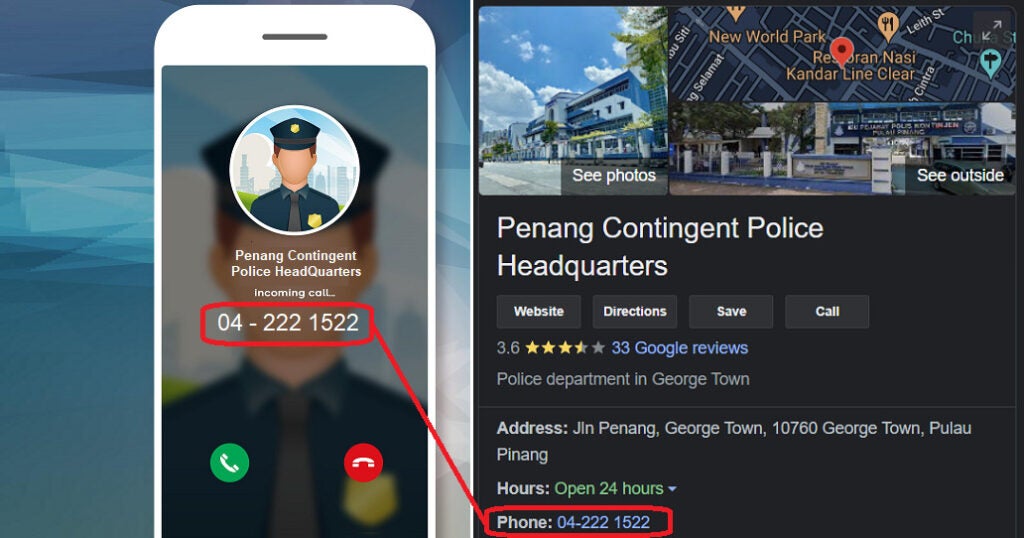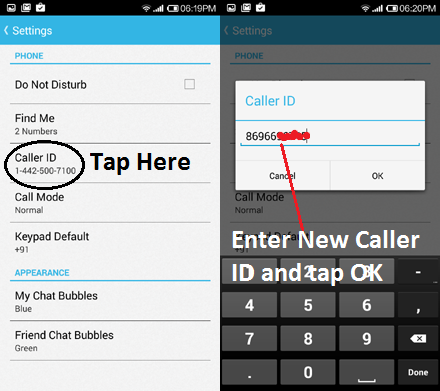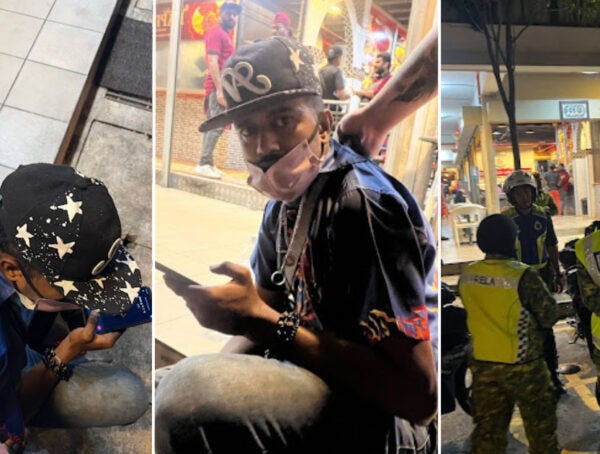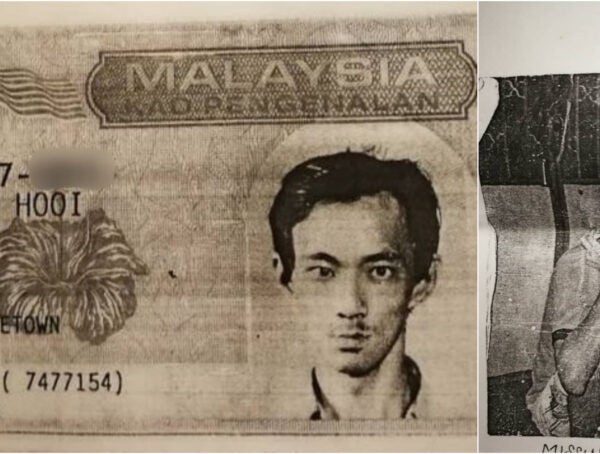Disclaimer: In Real Life is a platform for everyday people to share their experiences and voices. All articles are personal stories and do not necessarily echo In Real Life’s sentiments.
Subscribe to our Telegram for updates
A few months ago, while I was at home, I got a phone call from someone from the Income Tax Department (LDHN).
“Is this Sruti a/p Saravannan*? IC number 89XXXX-XX-XXXX?” the caller asked. (*Name changed to protect privacy)
“Yes, speaking,” I replied. The caller asked me to confirm my address, but it was an old address from 10 years ago.
I told him that I had moved since then and asked him what this is about.
“Ma’am, we are calling to inform you that you have an outstanding income tax balance of RM12,375 with LDHN.”
This was strange, because I had already done my taxes. I told him he must be mistaken.
He told me I had to attend a court hearing for ‘outstanding unpaid tax’

Image via Unsplash
“Miss, our records show that your RM12,375 remaining in outstanding tax is long overdue. Your court hearing is on 24 May 2023.”
Then he told me that if I did not settle in court, the amount would be deducted directly from my account.
I asked him, “How come I haven’t received any news about this, no emails, calls, or letters to my current address?”
He told me that they had sent multiple letters informing me of this to my home, but since I moved, they had no other way of contacting me.
I said I could not go for this hearing, because it was too sudden and only a few days away.
“If you are unable to attend your court date, kindly contact Mr. Shah at Makhamah Pulau Pinang and quote your case number, amount owed, and date of the latest notice,” he replied.
At this point, I was convinced that this was an urgent matter and that if I didn’t act, I was going to lose quite a lot of money, so I called the number he gave.
“Sir, there’s been some sort of mistake. It’s not possible that I owe this amount of tax. I think my identity has been stolen,” I pleaded with him.
The court officer said if that is the case, then I should make a police report. After that, he connected me to the police station.
The number I was connected to matched with a real police station number

(Left) Image via Canva, (Right) Image via Google Search Results
I waited until I was transferred to the police station. The ‘police officer’ that answered introduced himself as a high-ranking officer.
“Miss, I am Inspector Hadri. For security reasons, please cross-check the number on your phone with the Penang Police HQ phone number. It’s the number listed on Google.”
I googled it on my phone browser, and when I saw that the numbers matched, this gave me more confidence that I was speaking to the real police.
He listened patiently to my plea and seemed to believe me when I told him my predicament.
“Alright miss, I am going to check your IC in our database to see if it has been used in any other crimes.”
I waited with bated breath for him to check his system. After 10 minutes, he spoke to me again.
“We have case files here reporting instances of money laundering, petty theft, and fraudulent overseas transfers under your name.”
I was devastated. How could I have leaked my IC details to others?
This is when things turned for the worse

Image via Unsplash.
My thoughts were interrupted by the inspector. “Ma’am, this is a very serious matter. You must listen very carefully to what I am about to say. Please make sure you have privacy before speaking any further.”
A feeling of dread came over me. I did as he said and moved to a room where I was alone and would not be disturbed. It was at that point that he started to get more stern.
“Ma’am, your IC is part of a large-scale operation involving multiple bank accounts that have been seized for defaulting on payments. Are you sure you are not involved in any illegal activities?”
I told him I had no idea how this could have happened, and I really had nothing to do with this.
He continued, “How could your IC have ended up involved in matters like this? Did you sign any contracts? Did someone steal your card and make a copy of it while you were sleeping?”
I denied everything, but deep down I was feeling properly scared. I felt like he was interrogating me on the spot. As I was on the verge of crying, he stopped and said:
“Alright miss, I may have a solution for you. I will transfer you to my superior and you have to make a plea deal with him. Understood?”
I agreed, because what else could I do?
The police officer’s ‘superior’ at first doubted me, then offered to ‘help me out’
Then, the inspector told me exactly what I needed to say, and stressed that I had to be polite and respectful. Feeling extremely nervous, I was then connected to this ‘superior’.
The ‘superior’ listened to my plea. He was stern and doubtful initially, pressing for me to explain the situation over and over again. Once I was done, he seemed to make up his mind.
“Alright. I’m going to start recording this call and retrieve a form. Please repeat your name every few seconds to make sure there are no gaps/silence in the recording until I come back.”
I repeated my name every 3 seconds as I waited for him to get back to me anxiously.
When he returned, he said, “Now I’m going to fill out this report to help you. You must be as honest and as detailed as possible.”
He started to ask me details about myself, like my job, how many siblings I had, what my parents’ jobs were.
Then he started asking about my assets, like if I had any property, and what the rough balance in my account was. I asked him why I needed to share this information.
“Ma’am, I am asking you all this to make sure that it is perfectly clear that you are not involved in the money laundering case. This is important so that nothing would be called into question, and nothing you declare in this report would be seized,” he explained sternly.
The ‘superior’ started asking me about my financial situation

Image via Unsplash.
I decided to trust him and gave him my full financial details. He calmed down and mentioned that he would try to help.
He said he would put a ‘record’ in his report, which would somehow exempt me from this money laundering investigation.
“Ma’am, it’s extremely important that you must not mention any of this to family or friends, as everything you say in this recording will be used as part of an ongoing investigation,” he said.
He then asked me to open up a link in my browser on my phone.
“Here is the last step. I will send you a link to our PDRM portal. Please click the link to verify the information you have just given me.”
It was at this point that I really felt suspicious. I wanted to think before I opened up anything onto my phone, so I took this opportunity to say that I needed to restart my phone. The superior agreed.
But once I switched it off, I didn’t switch it back on. This is when I cut contact from him.
After thinking everything through, I realised it was too strange that a police officer would ask me to download a link.
And it was also strange that I was connected from one caller to another, like they were all using the same telephone line.
I got out of the house and immediately went in person to the bank to change my passwords. I even bought a new sim and changed my phone number.
As stupid as I feel now, I nearly fell for the scam because I wasn’t aware of how the police usually conduct investigations.
To this day, I don’t know how they were able to get my IC and even impersonate the phone number of the Police Station.
6 Steps to Avoid Becoming a Victim to a Phone Scam

Image: It is a simple hack to change one’s caller ID to a different number using a third-party phone app. Image via Google.
Looking back on it now, it was so obvious that I was being scammed. When I think back on that conversation, here’s what I should have done to avoid getting taken in by this scam:
- Block unwanted calls and text messages. Take steps to block unwanted calls and to filter unwanted text messages.
- Do not give out any personal information over the phone. Real organizations will not call, email, or text to ask for your personal information. If you do receive a call, go to a bank branch or government branch in person to verify the claims.
- Don’t call the number they gave you from your caller ID. Instead, tell them you’ll contact them through the hotline or email address on the official website, not an email they gave you.
- Resist the pressure to act immediately. Real businesses and government bodies will give you the adequate time to make a decision. If it is a caller who pressures you to pay or give them your personal information, it is most likely a scammer.
- Stop and talk to someone you trust. Before you do anything else, tell a friend, a family member, or a neighbor about what is happening. Talking about it could help you realize it’s a scam.
- Never download an app that isn’t from a verified company. These apps read your phone’s banking app activity by recording your screen.
Report All Scams to the Police
If you were scammed or think you saw a scam, report them to PDRM on their official website here.
Help spread awareness by sharing your story to ym.efillaerni@olleh
For more stories like this, read:
https://inreallife.my/beware-5-most-common-online-scams-malaysians-still-fall-for-in-2023/
(Editor’s note: We have reached out to Penang Contingent Police Headquarters who have confirmed that they have received many reports of this scam.)
You might also like
More from Real People
‘A RM100 fee cost a company 5 years of revenue’ shares M’sian
This story is about a Malaysian who learned that bureaucracy can be defeated simply by not arguing with it.A billing …
‘I quiet-quit, upskilled, and tripled my salary,’ shares M’sian engineer
This story is about a Malaysian who learned that loyalty without leverage leads nowhere in the corporate world.After years of …
‘I did everything right, and it still wasn’t enough’ shares M’sian graduate
This story is about a Malaysian graduate navigating big dreams in a job market where a degree no longer guarantees …


















